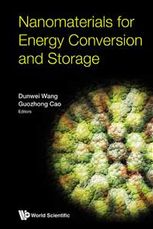
Nanomaterials for Energy Conversion and Storage
Authors : Dunwei Wang (Boston College, USA), Guozhong Cao (University of Washington, USA)
Publisher : World Scientific
ISBN : 978-1-78634-362-8
There are currently no reviews for this book title.
The use of nanomaterials in energy conversion and storage represents an opportunity to improve the performance, density and ease of transportation in renewable resources. This book looks at the most recent research on the topic, with particular focus on artificial photosynthesis and lithium-ion batteries as the most promising technologies to date. Research on the broad subject of energy conversion and storage calls for expertise from a wide range of backgrounds, from the most fundamental perspectives of the key catalytic processes at the molecular level to device scale engineering and optimization. Although the nature of the processes dictates that electrochemistry is a primary characterization tool, due attention is given to advanced techniques such as synchrotron studies in operando. These studies look at the gap between the performance of current technology and what is needed for the future, for example how to improve on the lithium-ion battery and to go beyond its capabilities.
Suitable for students and practitioners in the chemical, electrochemical, and environmental sciences, Nanomaterials for Energy Conversion and Storage provides the information needed to find scalable, economically viable and safe solutions for sustainable energy.
Suitable for students and practitioners in the chemical, electrochemical, and environmental sciences, Nanomaterials for Energy Conversion and Storage provides the information needed to find scalable, economically viable and safe solutions for sustainable energy.
Dr. Guozhong Cao is Boeing-Steiner Professor of Materials Science and Engineering, Professor of Chemical Engineering, and Adjunct Professor of Mechanical Engineering at the University of Washington, Seattle, Washington. He received his B.S. degree from East China University of Science and Technology, M.S. from Shanghai Institute of Ceramics, Chinese Academy of Sciences, and Ph.D. from Eindhoven University of Technology, the Netherlands. Dr. Cao has published over 580 technical papers with over 420 SCI papers including over 30 comprehensive review papers, and authored and edited eight books, book conference proceedings and contributed 29 book chapters, and received 16 US patents. He is one of the Thomson Reuters Highly Cited Researchers with a total citation of over 23,000 and an h-index of 74. His book Nanostructures and Nanomaterials: Synthesis, Properties and Applications has been used as a textbook or a reference book in many universities worldwide and also been translated and published in Russian and Chinese.
Dr. Dunwei Wang graduated from the University of Science and Technology of China in 2000 with a B.S. degree in Chemistry. He was then trained at Stanford University (with Hongjie Dai) between 2000 and 2005, where his Ph.D. thesis was awarded the Prize for Young Chemists by the International Union of Pure and Applied Chemistry (2006). After two years of post-doctoral study with James R. Heath at Caltech, he joined the faculty of Boston College where he is currently an Associate Professor of Chemistry. His research concerns the development of new materials that can be used for efficient solar energy conversion and storage. He is a recipient of an NSF CAREER award (2011), a Sloan Research Fellowship (2012), a Massachusetts Clean Energy Center (MassCEC) Catalyst award (2011), and a Japan Society for Promotion of Science Fellowship (2016). He has published close to 100 peer-reviewed journal papers that have been collectively cited over 12,000 times with an h-index of 44.
Dr. Dunwei Wang graduated from the University of Science and Technology of China in 2000 with a B.S. degree in Chemistry. He was then trained at Stanford University (with Hongjie Dai) between 2000 and 2005, where his Ph.D. thesis was awarded the Prize for Young Chemists by the International Union of Pure and Applied Chemistry (2006). After two years of post-doctoral study with James R. Heath at Caltech, he joined the faculty of Boston College where he is currently an Associate Professor of Chemistry. His research concerns the development of new materials that can be used for efficient solar energy conversion and storage. He is a recipient of an NSF CAREER award (2011), a Sloan Research Fellowship (2012), a Massachusetts Clean Energy Center (MassCEC) Catalyst award (2011), and a Japan Society for Promotion of Science Fellowship (2016). He has published close to 100 peer-reviewed journal papers that have been collectively cited over 12,000 times with an h-index of 44.
There are currently no reviews for this book title.
Buy this book, http://www.worldscientific.com/worldscibooks/10.1142/q0105, 9655, false
FAQs
Click on the "Buy this book" button
You can email us at book-review@enago.com and we will get back to you with the next steps shortly.
New Releases
-
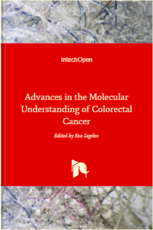
Advances in the Molecular Understanding of Colorectal Cancer
-
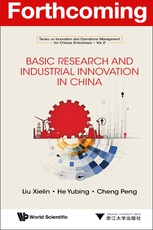
Basic Research and Industrial Innovation in China
-
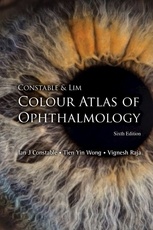
Constable & Lim Colour Atlas Of Ophthalmology: Sixth Edition
-
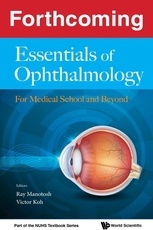
Essentials of Ophthalmology: For Medical School and Beyond
-

Fixed Revenue Accounting: A New Management Accounting Framework
All featured publishers and authors can avail of a free promotional interview on Enago Academy! Write to us now!
